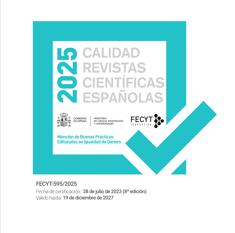Perspectives to improve the sexual health of sexual and gender identity minorities in Guatemala
DOI:
https://doi.org/10.15257/ehquidad.2016.0002Keywords:
MSM, Guatemala, HIV, Prevention, Transgender.Abstract
Sexual and gender identity minorities in Guatemala are disproportionally affected by HIV and other sexually transmitted infections (STI). However, little is known about the health determinants among these minorities that contribute to infection risk. Health researchers from the United States and Guatemala sought to explore sexual health needs and identify characteristics of HIV/STI prevention programs for these minorities. Our partnership conducted 8 focus groups with gay and bisexual men, men who have sex with men, and transgender women; and 10 in-depth interviews with community leaders. We analyzed transcripts of the focus groups and in-depth interviews using the Constant Comparison Method. We identified 24 factors that influence sexual health which we organized into 5 ecological domains and 16 characteristics of potentially successful programs to reduce HIV/STI risk. The identification of sexual risk factors and characteristics of potentially successful programs offers great potential to develop interventions to help reduce the risk of HIV/STI infection among these minorities in Guatemala.Downloads
Download data is not yet available.
Downloads
Published
2017-02-01
How to Cite
Alonzo, J., Mann, L., Simán, F., Sun, C. J., Andrade, M., Villatoro, G., & Rhodes, S. D. (2017). Perspectives to improve the sexual health of sexual and gender identity minorities in Guatemala. EHQUIDAD. INTERNATIONAL JOURNAL OF WELFARE AND SOCIAL WORK POLICIES, (5), 51–70. https://doi.org/10.15257/ehquidad.2016.0002
Issue
Section
Artículos












